Versus AARP’s 10 Essential Boomer Books
 As part of their Boomers @50+ feature, the good ‘ol (and I mean that in the most respectful manner) folks over at AARP gathered up a handful of prominent Baby-Boomers to highlight three of the popular arts linked to those born between 1946 and 1964. The same 76 million who “…reaped all the benefits of the postwar period’s extraordinary economic growth.” And as labeled by other gens, “The spoiled brats.”
As part of their Boomers @50+ feature, the good ‘ol (and I mean that in the most respectful manner) folks over at AARP gathered up a handful of prominent Baby-Boomers to highlight three of the popular arts linked to those born between 1946 and 1964. The same 76 million who “…reaped all the benefits of the postwar period’s extraordinary economic growth.” And as labeled by other gens, “The spoiled brats.”
I be one.
Admittedly, I probably match up with the latter more than I care to reveal. As P.J. O’Rourke wrote in his contributing essay:
“Yes, we’re spoiled rotten. We’re self-absorbed. And it seems like we’ll never shut up. But the boomers made a better world for everyone else. You’re welcome.”
“The boomers have been good at taking things: Mom’s car without permission, drugs, umbrage at the establishment, draft deferments, advantage of the sexual revolution, and credit for the civil rights and women’s liberation movements that rightly belongs to prior generations. The one thing that can be left in plain sight without us putting our sticky mitts on it is responsibility. Ask our therapists. Or the parents we haven’t visited at the extended-care facility.”
If I do anything on this blog, it is to examine the arts of books, music, and movies. Along with my history (or angst), with them. I confess it’s a tad self-absorbed, and so typical of my generation. With that said, I’ll add my set to the well-known contributors AARP selected for each of their Essential Boomer picks. First up, Erica Jong takes on the following with her stellar list:
Books
The Catcher in the Rye (1951) by J.D. Salinger — Erica: “Our adolescent angst defined.” Me: Can’t argue against her selection, or its top placement.
Catch-22 (1961) by Joseph Heller — Erica: “The antiwar novel to end all antiwar novels.” Me: She’s two for two for a pair only published ten years apart, and a chasm in-between.
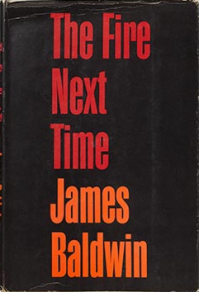

The Fire Next Time (1963) by James Baldwin — Erica: “The book that awakened New Yorker readers to the souls of black Americans.” Me: I’ll answer your Baldwin with Ralph Ellison’s The Invisible Man (1952).


The Group (1963) by Mary McCarthy — Erica: “The book that told us about our mothers’ lives.” Me: I’ll go with Henry Miller’s Tropic of Cancer (1952), and I don’t want to imagine what this juxtaposition means.
Couples (1968) by John Updike — Erica: “”Welcome to the post-pill paradise,” as one liberated character says.” Me: I know you couldn’t in all modesty, but I’ll nominate your Fear of Flying (1973).
The Whole Earth Catalog (1968) by Stewart Brand — Erica: “How to be green and save the globe.” Me: Well, if you wish to be ecological, see Frank Herbert’s seminal sci-fi classic, Dune (1965).
Portnoy’s Complaint (1969) by Philip Roth — Erica: “The penis as an instrument of men’s liberation.” Me: Not a direct corollary, but I’ll answer with In Cold Blood (1969) by Truman Capote.
Sisterhood is Powerful (1970) by Robin Morgan — Erica: “The book that told us how not to relive our mothers’ lives.” Me: Robert M Pirsig answered my philosophical questions with Zen and the Art of Motorcycle Maintenance (1974) .
The Female Eunuch (1970) by Germaine Greer — Erica: “Sexuality is power. Renouncing it only makes us powerless.” Me: I have to include Ray Bradbury’s Fahrenheit 451 (1953) somewhere on my list. Why not here.
Diet for a Small Planet (1971) by Frances Moore Lappé — Erica: “The first book to make us aware that Earth’s resources are far from infinite.” Me: The finite life detailed in The Autobiography of Malcolm X (1965) remains one for the ages, and this boomer.


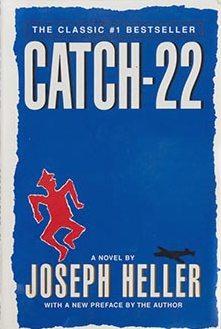
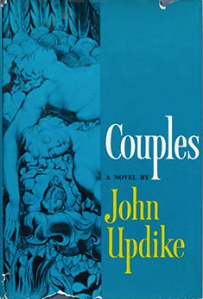

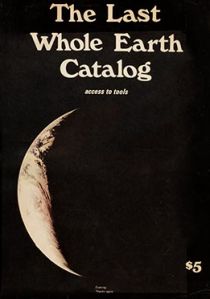

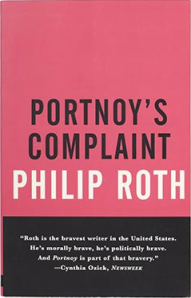


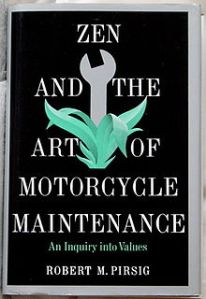



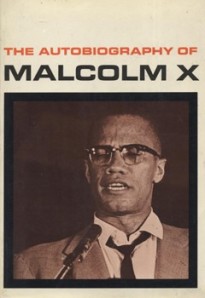
12 Responses to “Versus AARP’s 10 Essential Boomer Books”
I’ve only read the top two, but it’s interesting to see that they’re the two you didn’t argue with! I’m a big fan of both.
LikeLike
Great to hear, Dan. They are indeed great. Many thanks for the comment. 🙂
LikeLike
Haven’t read most of these and probably won’t. I guess history will sort out the greatness and lasting power of these works.
Lee
An A to Z Co-Host
Tossing It Out
LikeLike
I’m sure history will, Arlee. Thank you very much for the read and comment. 🙂
LikeLike
Glad to see Updike–I would have added John Cheever and Raymond Carver and Sylvia Plath and Ken Kesey. Great list!
LikeLike
Glad you included those authors, Cindy. So many great writers and material. Thank you very much. 🙂
LikeLike
Most of these were required reading when I was in junior high and high school.
Remember ‘Catch-22’ for its long way around telling a rather short story. Book is still better than the film. Also remember ‘Invisible Man’ and a better read, and film, ‘Black, Like Me’.
Reading ‘The Group’ got me interested in trashy Harold Robbins’ works. Which, in turn lead me to early Kesey, Hunter Thompson and Tom Wolfe. Where his ‘Radical Chic and Mau Mauing the Flak Catchers’ still reigns supreme.
Along with P.J. O’Rourke’s ‘Republican Party Reptile’, ‘ Parliament of Whores’ and ‘Give War A a Chance’ close behind.
Tried ‘Dune’. Didn’t like it. Same with Tolkein. Though Ralph Bakshi’s Roto-Scoped, ‘The Hobbit’ is quite good.
Enjoyed “Zen’ and ‘Fahrenheit 451’.
LikeLike
Same here, Kevin. Others came when I first went to college. Glad you included your influential favorites, my friend. Many thanks, my friend.
LikeLike
I haven’t read most of these, but then, not being a boomer, maybe I don’t have to. 🙂 There are a few of them that I do plan on getting to eventually though. The only one of these I’ve read that I can recall clearly is Catch-22, which I’ve read twice and greatly enjoyed both times.
LikeLike
Joseph Heller’s Catch-22 remains a must-read in my eyes. A few of these here were thrust upon me by school and/or our students, but I was so glad they did. Many thanks for the read and comment, Morgan. 🙂
LikeLike
Catch-22 is one of the very few books I was “forced to read” and found myself glad of it. 🙂 To Kill a Mockingbird (which seems like an interesting oversight here) was another, though I’m still unsure why I had to read it three separate times in school…
LikeLike
True about To Kill A Mockingbird. I thought about adding it, but seemed too safe a choice, though it is a certified classic. Thanks, Morgan.
LikeLike